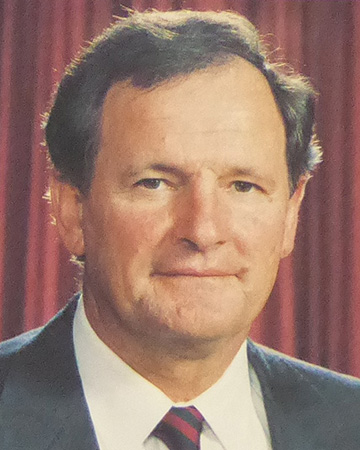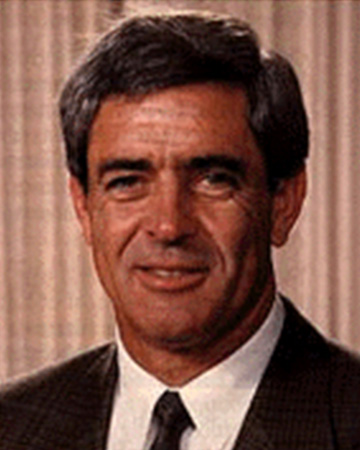Appointment of Alex Campbell to the newly formed State Salinity Council
25/3/97
The State Government has announced the appointment of Mr Alex Campbell to head up the newly formed State Salinity Council.
Mr Campbell has extensive experience in the areas of farm forestry, natural resource management and agricultural leadership.
He is national chairman of the Land and Water Resources Research and Development Corporation and chairman of the Farm Forestry Development Group.
He is a former president of the WA Farmers' Federation and was responsible for the land use portfolio on the National Farmers' Federation executive. He has also served on the board of Landcare Australia and the State Soil and Land Conservation Council.
The Salinity Council, which Mr Campbell will chair, is to be a key factor in the State Government's campaign to combat salinity.
It will co-ordinate advice to the Government on priorities for salinity management and implementation of the Salinity Action Plan announced by the Government last year.
Deputy Premier Hendy Cowan said today that salinity was the State's most serious environmental issue.
Recognising this, the State Government had committed an extra $10 million a year to support the Salinity Action Plan, lifting its total commitment to $58 million a year.
Other members of the Council include chairpersons of the Soil and Land Conservation Council; Rural Adjustment and Finance Corporation; National Parks and Nature Conservation Authority; Lands and Forests Commission; Water and Rivers Commission; Environmental Protection Authority and a representative from the Farm Forestry Development Group.
There will also be representatives of business, environment and primary industry groups.
Mr Cowan said the Government would also step up efforts to access Commonwealth Natural Heritage Trust funds to help finance revegetation strategies.
To this end, the State Salinity Council would reconvene, as required, as the State Assessment Panel for the purpose of making recommendations on Natural Heritage Trust funding in WA. As the State Assessment Panel, it would have two additional members representing regional communities and Aboriginal interests.
Primary Industry Minister Monty House said Mr Campbell, who had been appointed for a three-year term, was widely respected in the rural community and had the management and leadership expertise necessary to ensure the various participants in the salinity fight remained focused and co-ordinated.
Mr House said the scope of the salinity problem in WA demanded a co-ordinated, whole of government approach.
Accordingly, the Salinity Council would receive advice and executive support from the chief executive officers of Agriculture WA; Water and Rivers Commission; Department of Conservation and Land Management and Department of Environmental Protection.
These officers would be responsible for their agency's role in implementing the Salinity Action Plan and securing necessary funding.
Mr House said formation of the Council was an important step in co-ordinating the effort against salinity, which had long been recognised as a major problem but which had sometimes been tackled in a disjointed way.
A major priority of the Salinity Action Plan would be to include the whole community in its implementation, as salinity was a problem from which consequences extended far beyond rural communities.
The Ministers said it was vital that significant gains were made in the war against salinity, otherwise the amount of salt-affected land in WA could easily double in the next 20 years."
The Salinity Action Plan recommended that over the next 30 years, some 3,000,000 ha of trees and shrubs would need to be planted to control salinity in south-western WA.
"A key part of the Salinity Action Plan will be the planting of 100 million trees each year and the introduction of new farming techniques," the Ministers said.
Media contact: Peter Jackson (Mr Cowan's office) 09-222-9595 Nicole Trigwell (Mr House's office) 09-481-2044




